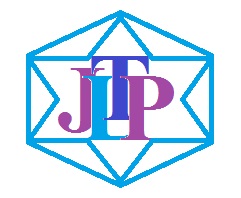DEVELOPMENT OF PROBLEM SOLVING SKILLS TEST ON DYNAMIC FLUID MATERIAL IN PBD TARUNA HIGH SCHOOL MEDAN
Abstract
This research focuses on the development of physics problem solving skills test instruments on dynamic fluid material in class XI SMA. The purpose of this research is to find out how to develop a Problem Solving-based test instrument on dynamic fluid material and to determine the feasibility of a Problem Solving-based test instrument on dynamic fluid material. The type of research used in this research is R & D (Research and Development) development research using the ADDIE research model which has a research design through four stages, namely the Analysis, Design, Development, Implementation and Evaluation stages. The test sample in this study were students of class XI SMA Taruna PBD Medan with a total of 29 students with the assumption that all classes were homogeneous. The research instrument used was a test based on Problem Solving skills which amounted to 7 items in the form of essays. The test results obtained from the Problem Solving ability test instrument in the validation test conducted by 3 validators who have a very high category score which is included in the category worth using with revision. Analysis of the Problem Solving ability instrument that has been given to 29 students with the results obtained in the validity and reliability trials obtained that all test instruments are valid and reliable. In the difficulty level trial, five questions were classified as moderate, one was classified as easy and one was classified as difficult. Furthermore, in the test of the differential power of the seven questions in the category of very good. Thus the test instrument developed is feasible to use as many as five questions.
So it can be concluded that the development of instruments based on students' Problem Solving ability is feasible to use to measure students' thinking skills.Full Text:
PDFDOI: https://doi.org/10.24114/jltp.v5i2.57808
Article Metrics
Abstract view : 17 timesPDF - 9 times
Refbacks
- There are currently no refbacks.
Copyright (c) 2024 Journal of Learning and Technology in Physics

This work is licensed under a Creative Commons Attribution 4.0 International License.
 Journal of Learning and Technology in Physics
Journal of Learning and Technology in Physics
